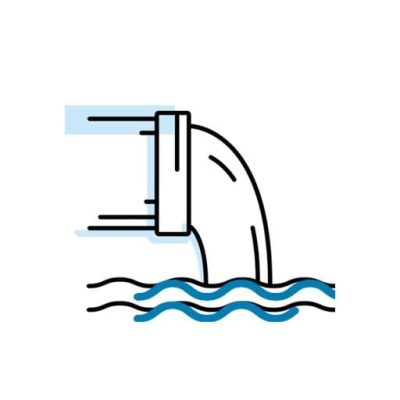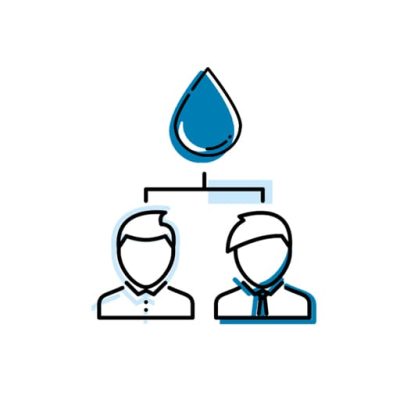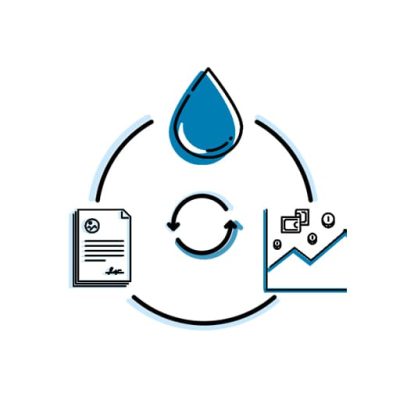

Production is highly dependent on water availability, making water a very valuable resource. For years, Algist Bruggeman has been working with academics and experts to minimize the impact on the local water ecosystem. Currently, the main source of water, being groundwater, is scarce and Algist wants to study how they can reduce their footprint without compromising quality.
To solve this challenge, a future-proof water management plan was required, which allow Algist Bruggeman to rely on more than one source of water and always have production security.
A stepwise approach was used, starting with a thorough investigation of the initial situation, in which the main water source was groundwater with a limited amount of tap water. All water flows and qualities were determined in detail to have thorough insights in the water balance. Potential alternative water sources were identified:

Figure 1: Example of matching supply and demand to design the treatment installation capacity and the buffer tank size.
The potential treatment installation was designed by Water Experts, considering many aspects such as flow rates, size, operational pressure, chemical usage (for coagulation, membrane cleaning, antiscalants,…) need for backwash, electricity consumption, intermediary buffer tanks, recoveries of membrane technologies, types of membranes, operational conditions,…
This extensive basic design ensured that the installation would be of the required quality both in design and future operation.
This future-proof masterplan for water management will unburden Algist Bruggeman from the future challenges ahead. They are prepared and can enjoy production security through flexible use of alternative water sources and reliable treatment technology for drinking water quality.
The guidance of Water Experts allowed for a qualitative end result and clear steps towards implementation.


